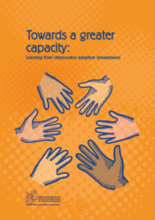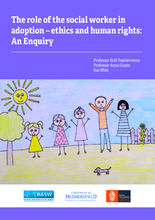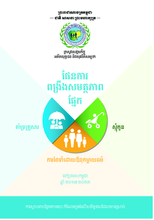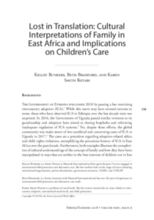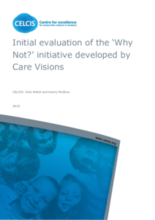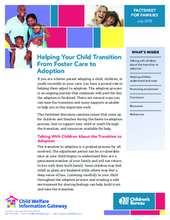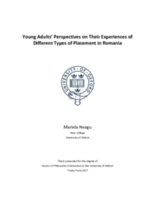Displaying 321 - 330 of 660
This new ISS publication on intercountry adoption breakdowns aims at giving support to adoptees, adoptive parents, professionals from Central Authorities and from other competent authorities, and Adoption Accredited Bodies, in order to prevent and manage the crises, and even breakdowns, faced by adoptive families.
This report presents the findings of a UK national Enquiry into the role of the social worker in adoption with a focus on ethics and human rights.
This Plan presents key findings and 23 recommendations, sub-divided into short-term, medium-term and long-term actions, for an effective and efficient implementation of foster care, adoption and family support in Cambodia.
This volume is an effort to highlight best practices for children without parental care.
This article explores Intercountry Adoption (ICA) practices and the related expansion of orphanages (also referred to as residential care) in the East African context.
This short document provides a summary of initial learning from data gathered for an evaluation of the Why Not? initiative in Scotland. The Why Not? initiative within Care Visions services was started in 2014 to ‘improve the way young people are supported when ageing out of care, by offering a different experience of relationships beyond care.’
This factsheet for families offers tips for helping a child transition from foster care to adoption.
This study uses data from the recent Modern Adoptive Families survey to understand parent perspectives on their preparation for adoption.
This study uses data from the recent Modern Adoptive Families survey to understand parent perspectives on their preparation for adoption.
This study explores the childhood experiences and transitions to adulthood of 39 Romanian care leavers and adoptees, born around 1989 - 1990.

